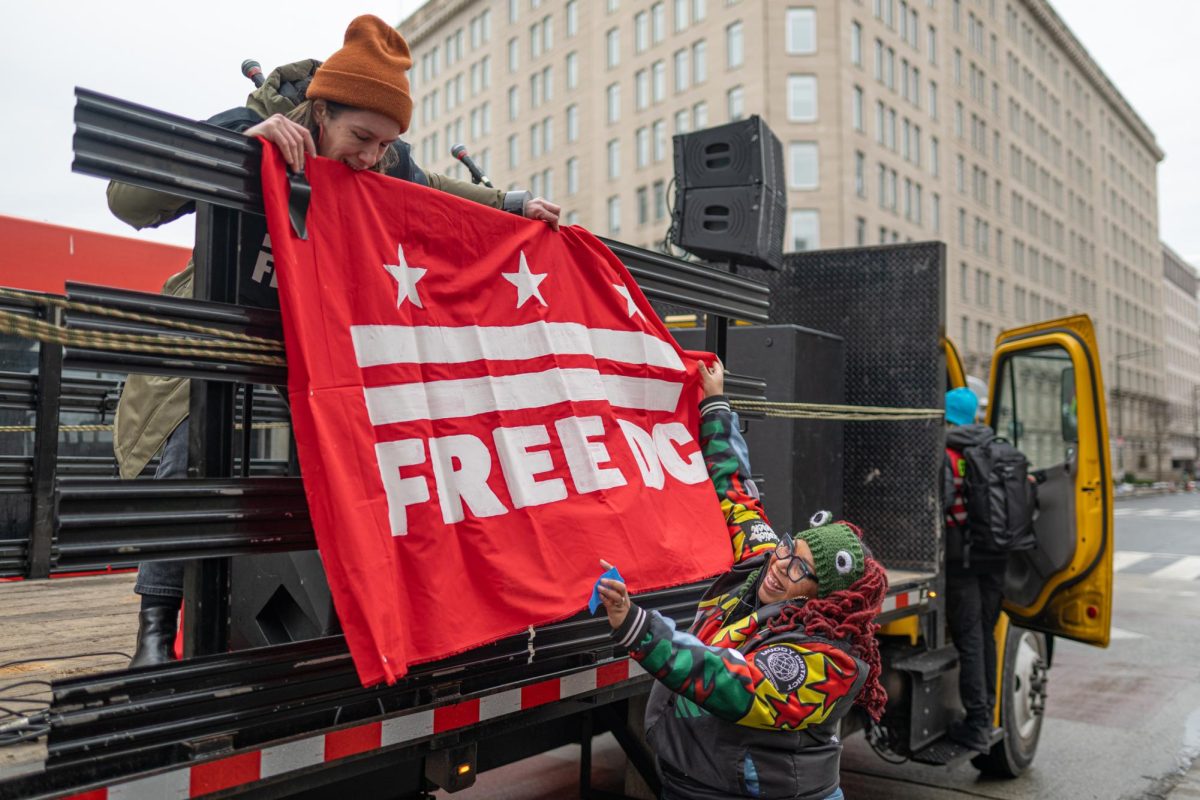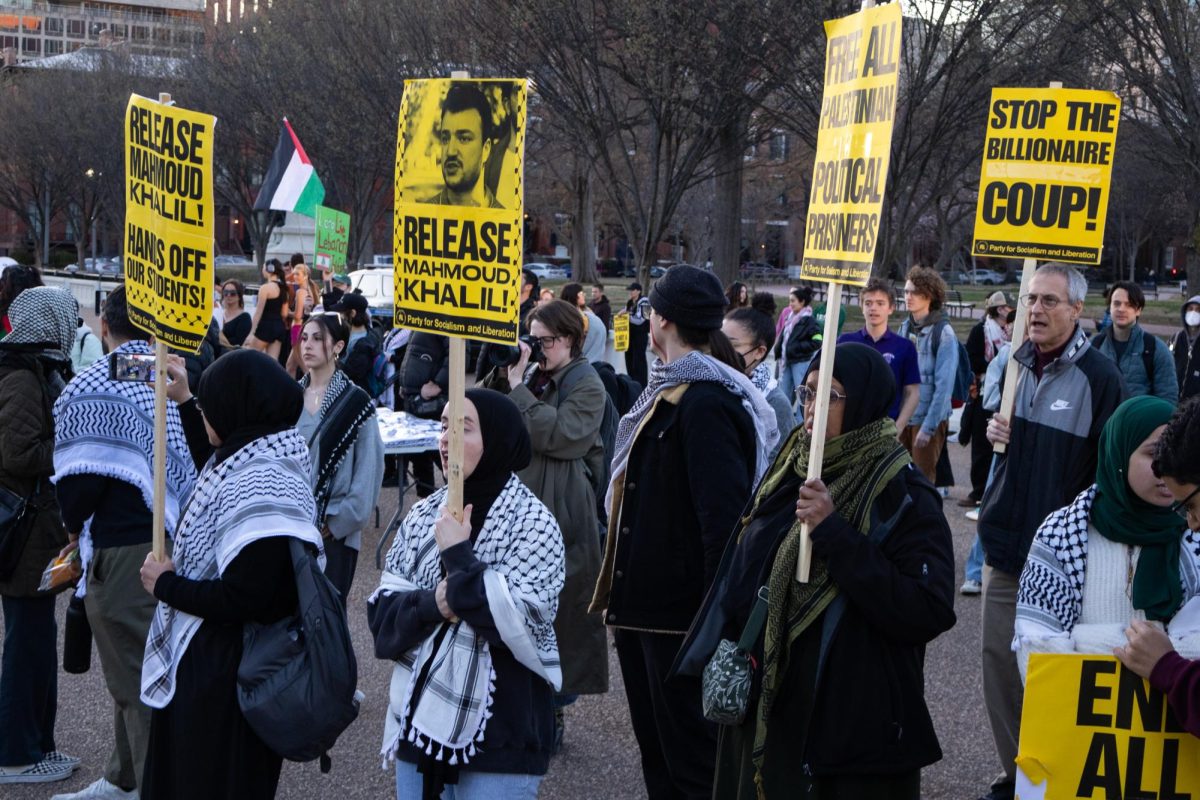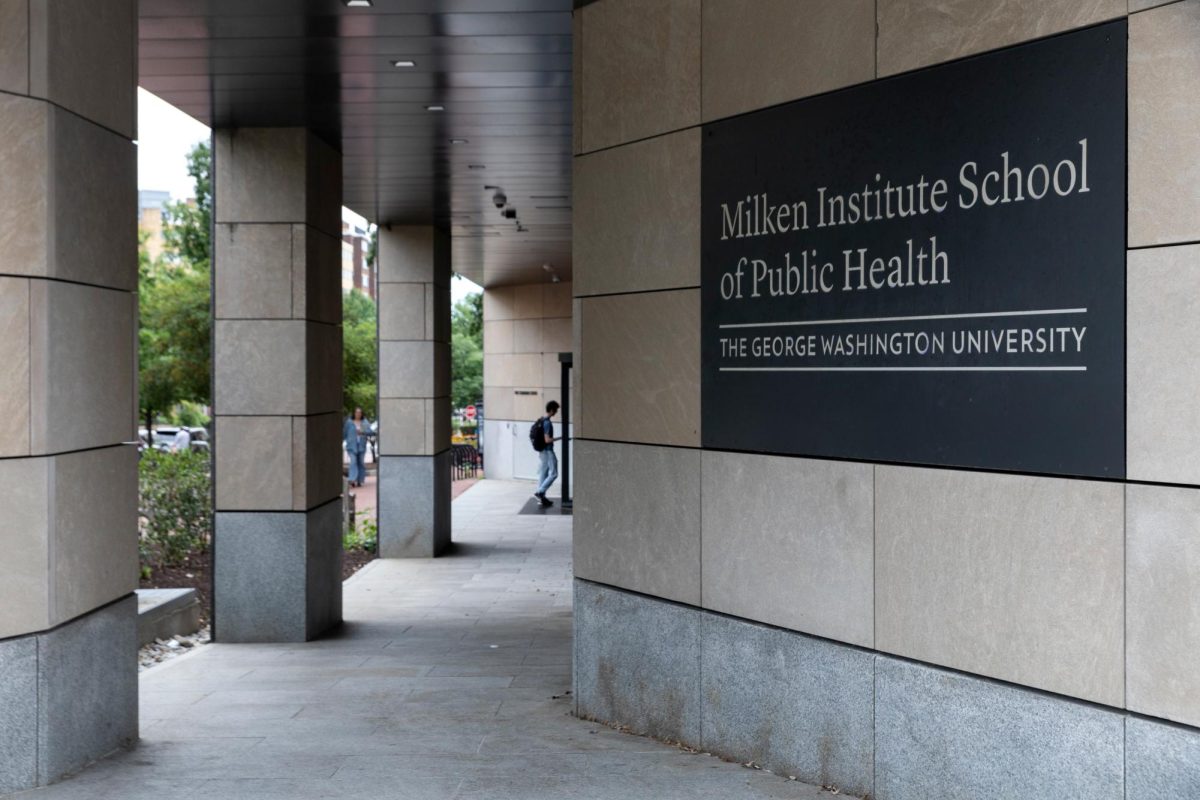President Donald Trump threatened to issue an executive order to crack down on unhoused encampments and graffiti and ramp up penalties for certain crimes in D.C. last month, another move to increase federal oversight over the District that community leaders said could exacerbate existing issues.
Trump soon will sign an order to clear encampments, clean graffiti and harshen punishments for violent and petty crimes in the District, the Washington Post reported on Feb. 10. Since taking office, during his 2024 campaign and during his first term, the president has also expressed support for repealing D.C.’s self-governing power, also known as home rule, over critiques of the local government’s handling of crime and homelessness.
The D.C. Home Rule Act of 1973 established D.C.’s right to self-governance or “home rule,” which permitted the District to elect a mayor and a 13-member council. Under the Home Rule Act, Congress reviews all legislation passed by the D.C. Council and has the power to pass or overturn the legislation.
On Feb. 6, Sen. Mike Lee (R-UT) and Rep. Andrew Ogles (R-TN) introduced a bill which, if passed, would repeal the District’s home rule. Though Trump endorsed the idea on Feb. 19, the bill faces steep odds even with Republican control of Congress because it would need some Democratic support to surpass a filibuster — or a 60-vote supermajority — in the Senate and a unified Republican front.
Bowser said in a press conference Feb. 20 that she and the president have “shared priorities” to address crime and homelessness in D.C. Her approach to crime aligns with some of Trump’s rhetoric of law and order on his campaign trails, including rolling back drug-free zones, increasing pretrial detention and stiffer penalties for illegal possession of firearms.
“We will brief the president, give him the facts and work with him cooperatively,” Bowser said at the press conference.
Trump emphasized the need to clear up unhoused encampments in anticipation of visits from leaders of foreign countries, like French President Emmanuel Macron and Chinese President Xi Jinping earlier this week. About 9,774 individuals are experiencing homelessness in the District, according to a Point in Time count in January 2024.
National Coalition for the Homeless Executive Director Donald Whitehead said D.C has seen an increase in homelessness and homeless encampments in recent years. Rising housing costs, lack of affordable housing and financial insecurity all contribute to increasing rates of homelessness, according to the Greater Washington Community Foundation.
Whitehead said encampment raids are not the solution to homelessness, which lies in affordable housing and determining the underlying need of people experiencing homelessness.
“Over the last two years, we’ve seen a 30 percent increase in homelessness, but we’ve also seen an increase in encampment raids like the ones that are being proposed in the executive order,” Whitehead said.
Federal prosecutors appointed by the president could also increase prosecution of certain crimes or pursue harsher penalties, the Office of the Attorney General’s site states. The U.S. Attorney’s Office for D.C. shares limited prosecuting power with the U.S. Attorney Office, and most violent offenses committed by adults in the District are prosecuted by the U.S. Attorney Office.
Keith Wallington — the director of advocacy at the Justice Policy Institute, a criminal justice advocacy group — said the Trump administration should tackle criminal justice reform by addressing poverty, focusing on community investments in mental health, education and housing services and combating food deserts. In his first term as president, Trump backed more aggressive national initiatives to bolster police forces and address homelessness by banning encampments.
“We’ve tried to arrest our way to public safety for 100 years now, but it hasn’t worked,” Wallington said.





